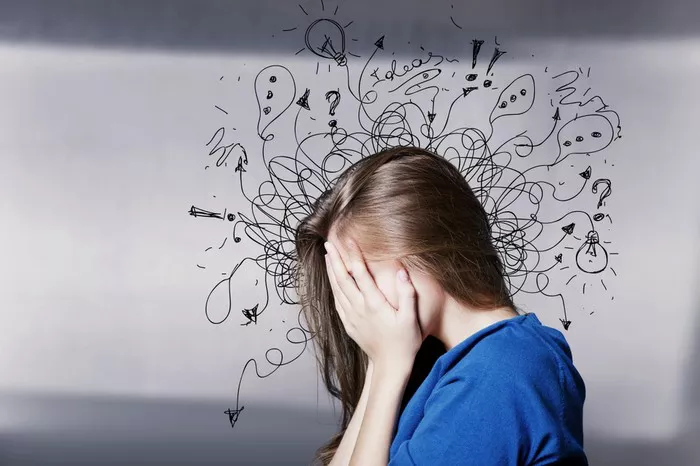Panic attacks are intense episodes of sudden fear or anxiety that can be debilitating for those who experience them. These episodes are often accompanied by physical symptoms such as a rapid heartbeat, shortness of breath, and a feeling of impending doom. While the causes of panic attacks are complex and multifaceted, there is a growing interest in understanding the role that alcohol may play in triggering or exacerbating these episodes.
Can alcohol cause a panic attack?
One of the questions frequently asked is, “Can alcohol cause a panic attack?” Research suggests that alcohol can indeed contribute to the occurrence of panic attacks. Alcohol is a central nervous system depressant, and its effects on neurotransmitters such as gamma-aminobutyric acid (GABA) can lead to a cascade of reactions in the brain, potentially triggering panic attacks in susceptible individuals.
The Anxiety-Alcohol Connection
The relationship between anxiety and alcohol is intricate. Some individuals turn to alcohol as a means of self-medication to alleviate feelings of anxiety. However, this coping mechanism can backfire, as excessive alcohol consumption may disrupt the delicate balance of neurotransmitters in the brain, potentially leading to panic attacks.
Alcohol’s Impact on GABA Receptors
GABA is a neurotransmitter that has a calming effect on the brain. Alcohol enhances the activity of GABA, leading to a temporary sense of relaxation and euphoria. However, when the effects wear off, there can be a rebound effect, causing increased anxiety and the potential for panic attacks. Understanding this mechanism sheds light on why some individuals may experience heightened anxiety after drinking.
How do you break a panic attack loop?
Breaking the cycle of panic attacks can be challenging, but it is essential for individuals seeking relief. Recognizing triggers, including alcohol consumption, is a crucial first step. If alcohol is identified as a trigger, limiting or abstaining from its use may help break the panic attack loop. Seeking professional help, such as therapy or counseling, can provide coping mechanisms and strategies to interrupt the cycle of anxiety and panic.
Identifying Personal Triggers
Understanding the unique triggers for panic attacks is pivotal in breaking the loop. Individuals should reflect on their experiences and identify patterns that may be contributing to the recurrence of panic attacks. This self-awareness can empower individuals to make informed decisions about their lifestyle choices, including alcohol consumption.
The Role of Alcohol in Panic Attack Frequency
Research indicates that chronic alcohol use can increase the frequency and severity of panic attacks. The long-term impact of alcohol on the brain’s neurochemistry may lead to a heightened vulnerability to anxiety disorders, exacerbating the likelihood of panic attacks. It is crucial for individuals struggling with both alcohol use and panic attacks to seek comprehensive treatment addressing both issues simultaneously.
How do you calm down a panic attack?
Calming down during a panic attack is a skill that individuals can develop through practice and self-awareness. While the efficacy of specific techniques may vary from person to person, the following strategies can be helpful:
See Also: Managing a Panic Attack at Work
Deep Breathing Exercises:
Engaging in deep, slow breaths can activate the body’s relaxation response, counteracting the physiological symptoms of a panic attack.
Mindfulness Meditation:
Mindfulness techniques, such as meditation, can help individuals stay grounded in the present moment, reducing the intensity of a panic attack.
Progressive Muscle Relaxation (PMR):
Systematically tensing and then relaxing different muscle groups can alleviate physical tension and contribute to a sense of calm.
Positive Affirmations:
Repeating positive affirmations can shift focus away from negative thoughts, helping to break the cycle of panic.
Visualization:
Imagining a peaceful and serene place can distract the mind from the panic-inducing thoughts, providing a mental escape.
Why do I feel like I’m having a constant panic attack?
Experiencing a constant feeling of panic or anxiety can be overwhelming and distressing. Several factors may contribute to this persistent state:
Chronic Stress:
Prolonged exposure to stressors without adequate coping mechanisms can lead to a constant state of heightened anxiety.
Underlying Mental Health Conditions:
Conditions such as generalized anxiety disorder (GAD) can manifest as a pervasive sense of unease, resembling a continuous panic attack.
Substance Use:
Substance abuse, including alcohol, can exacerbate anxiety symptoms, creating a persistent feeling of being on edge.
Neurobiological Factors:
Imbalances in neurotransmitters or the brain’s sensitivity to stress may contribute to a chronic sense of panic.
Lifestyle Factors:
Poor sleep, an unhealthy diet, and lack of exercise can impact mental well-being, contributing to a constant state of anxiety.
Conclusion
In conclusion, the relationship between alcohol and panic attacks is complex and multifaceted. While alcohol can act as a trigger for panic attacks, it is crucial to recognize the individual variability in how people respond to alcohol. Developing coping mechanisms, seeking professional help, and addressing underlying issues are essential steps for individuals aiming to manage or prevent panic attacks associated with alcohol use. Understanding the intricate interplay between alcohol and panic attacks empowers individuals to make informed decisions about their mental health and well-being.
Related Topics:
Mild Depression: Treatment and Self-Care
Can COVID Cause Stress and Anxiety?
How Can I Tell If I’m Bipolar? 4 Common Signs


